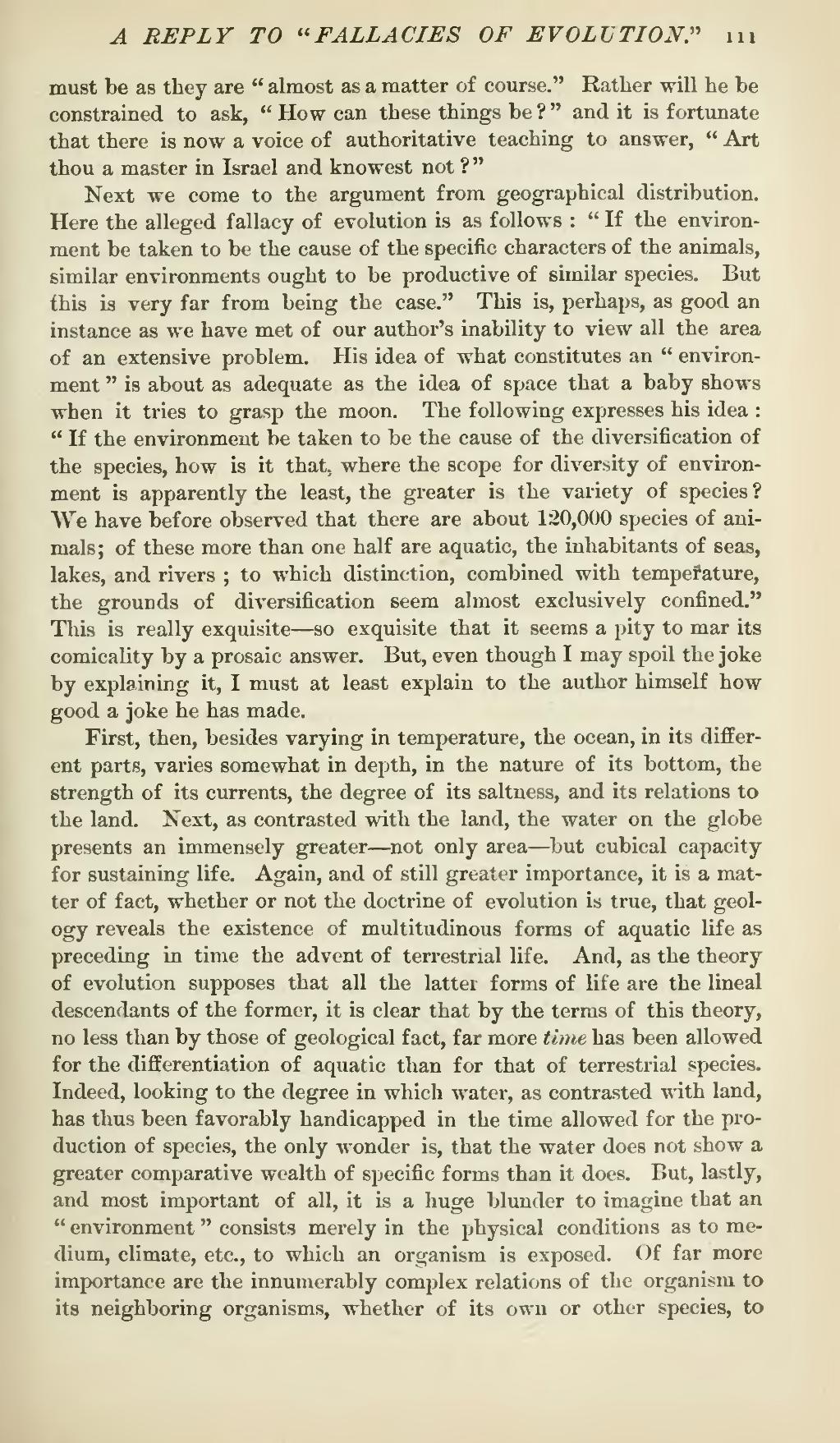must be as they are "almost as a matter of course." Rather will he be constrained to ask, "How can these things be?" and it is fortunate that there is now a voice of authoritative teaching to answer, "Art thou a master in Israel and knowest not?"
Next we come to the argument from geographical distribution. Here the alleged fallacy of evolution is as follows: "If the environment be taken to be the cause of the specific characters of the animals, similar environments ought to be productive of similar species. But this is very far from being the case." This is, perhaps, as good an instance as we have met of our author's inability to view all the area of an extensive problem. His idea of what constitutes an "environment" is about as adequate as the idea of space that a baby shows when it tries to grasp the moon. The following expresses his idea: "If the environment be taken to be the cause of the diversification of the species, how is it that, where the scope for diversity of environment is apparently the least, the greater is the variety of species? We have before observed that there are about 120,000 species of animals; of these more than one half are aquatic, the inhabitants of seas, lakes, and rivers; to which distinction, combined with temperature, the grounds of diversification seem almost exclusively confined." This is really exquisite—so exquisite that it seems a pity to mar its comicality by a prosaic answer. But, even though I may spoil the joke by explaining it, I must at least explain to the author himself how good a joke he has made.
First, then, besides varying in temperature, the ocean, in its different parts, varies somewhat in depth, in the nature of its bottom, the strength of its currents, the degree of its saltness, and its relations to the land. Next, as contrasted with the land, the water on the globe presents an immensely greater—not only area—but cubical capacity for sustaining life. Again, and of still greater importance, it is a matter of fact, whether or not the doctrine of evolution is true, that geology reveals the existence of multitudinous forms of aquatic life as preceding in time the advent of terrestrial life. And, as the theory of evolution supposes that all the latter forms of life are the lineal descendants of the former, it is clear that by the terms of this theory, no less than by those of geological fact, far more time has been allowed for the differentiation of aquatic than for that of terrestrial species. Indeed, looking to the degree in which water, as contrasted with land, has thus been favorably handicapped in the time allowed for the production of species, the only wonder is, that the water does not show a greater comparative wealth of specific forms than it does. But, lastly, and most important of all, it is a huge blunder to imagine that an "environment" consists merely in the physical conditions as to medium, climate, etc., to which an organism is exposed. Of far more importance are the innumerably complex relations of the organism to its neighboring organisms, whether of its own or other species, to

